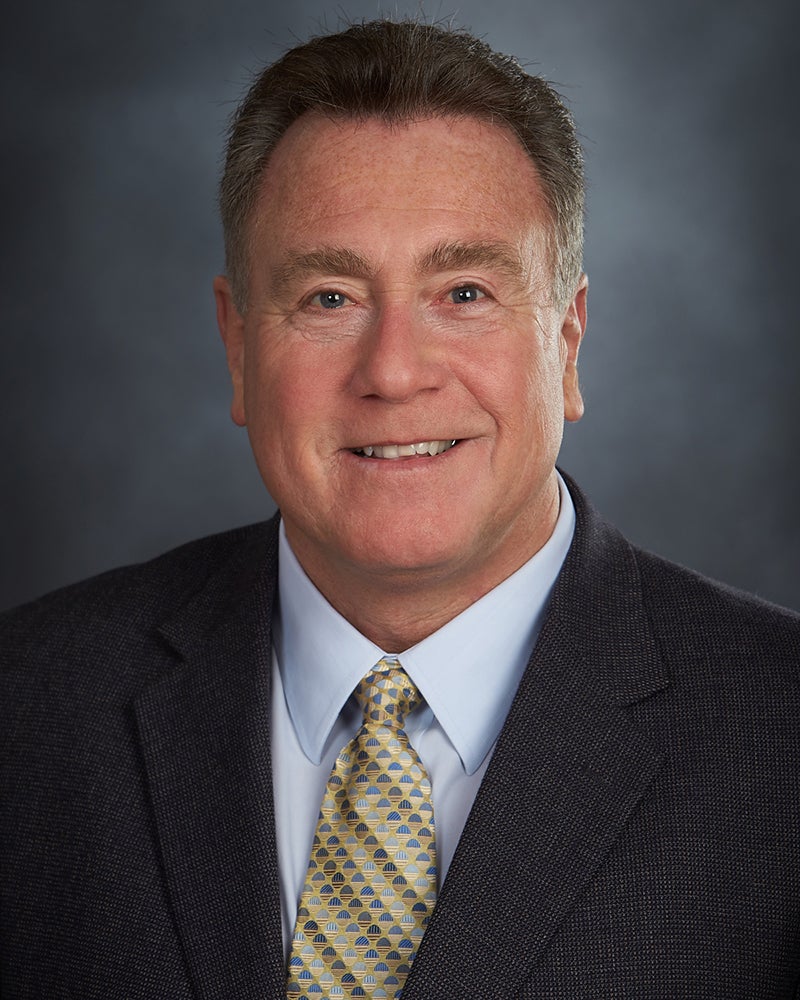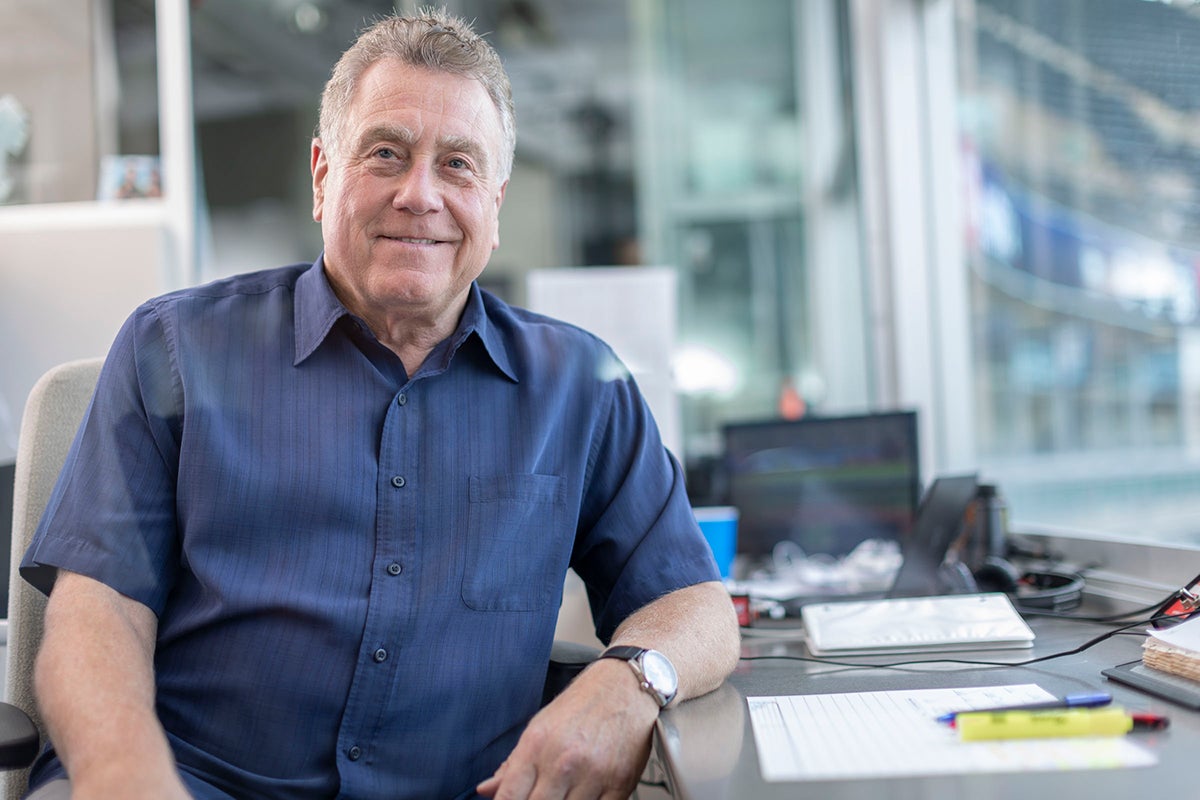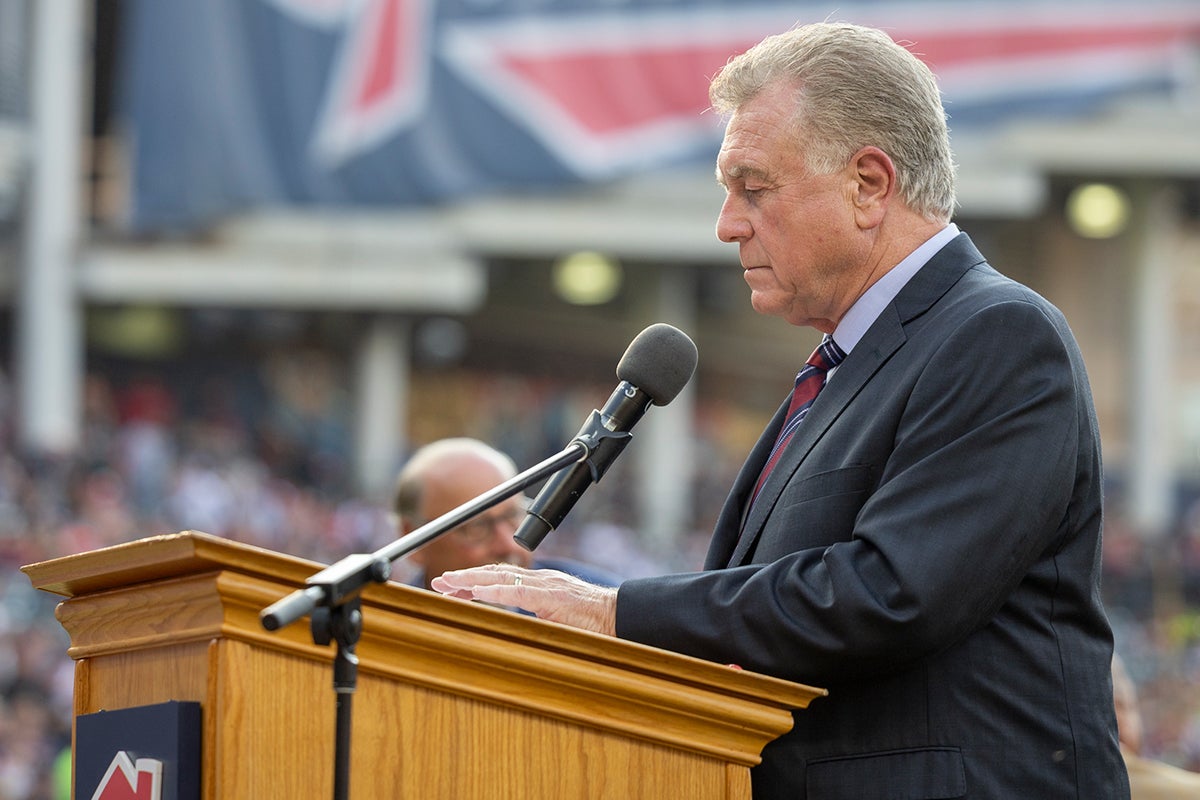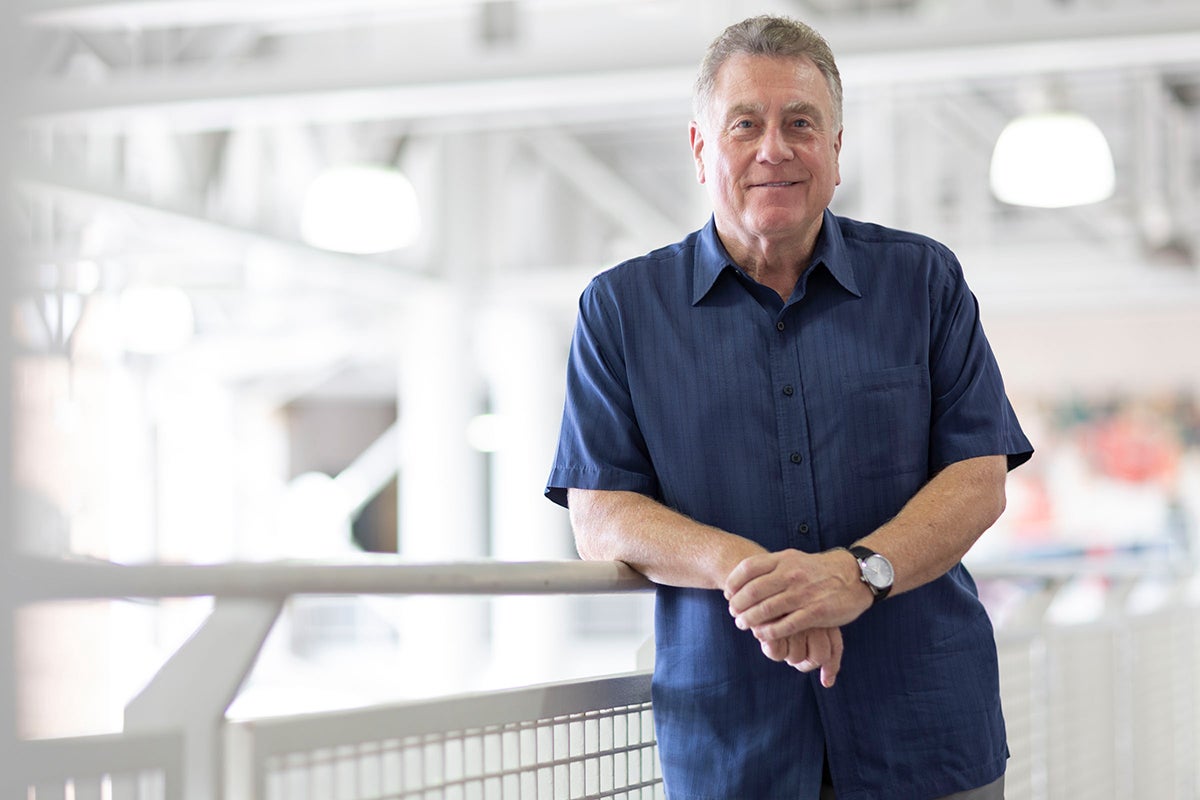Cleveland Rock: Beloved Guardians radio voice Tom Hamilton overwhelmed by Frick Award

Tom Hamilton had been a Frick Award finalist three times previously, so he knew what would happen if he did not receive good news on Wednesday.
But when the phone call came telling him that he was the 2025 Ford C. Frick Award winner, the flow of emotions caught Hamilton by surprise.
“Well, whoever had ‘Under 15 seconds before he cries’ won,” Hamilton said during a media availability following the announcement. “I’m so humbled, I’m so grateful, and I can’t believe it happened.”
Hamilton became the 49th winner of the National Baseball Hall of Fame and Museum’s Ford C. Frick Award, which is presented annually and honors the top broadcasters in the game.
“I certainly looked at that list of 10 (finalists), and if you were to rank them, I would have put myself 10th,” said Hamilton, fighting back tears from his red-rimmed eyes. “I was just so honored to be a part of that list. I know how blessed I’ve been and how fortunate I was to get that call.
“You sure don’t get into this (business) thinking about the Hall of Fame awards. When you get the call you got (your first job), you won the lottery. Getting that call in January 1990 to be hired by the Cleveland Indians was the greatest phone call I’ve ever had in my professional career. This ranks right up with it.”

Hamilton has called Cleveland games since the 1990 season, starting with Herb Score on the radio and then pairing over the years in the WWWE/WTAM-AM booth with Mike Hegan, Dave Nelson, Matt Underwood and Jim Rosenhaus. His career spans what is arguably the greatest sustained success in franchise history, with the team advancing to three World Series among 14 postseason berths.
For a generation of Cleveland fans, Hamilton is the only radio voice they have known during a time when he became a Northeast Ohio icon.
“There’s no guarantee when you come into a new city or new market that people are going to like you,” Hamilton said. “I think I caught such a break and if folks do like me, it’s because of Herb Score. Because Herb accepted me and the because of the cachet Herb had in this town, if Herb accepted you, then the audience automatically was like ‘Oh, OK, well, we’ll give him a chance.’
“There’s never apathy in the city of Cleveland about the ballclub. These are great fans, but more importantly the fans care. And I think I’ve been the beneficiary of that.”

Born Aug. 19, 1954, Hamilton was raised on a Wisconsin dairy farm until he was in his teens. He grew up listening to Milwaukee Braves games and announcer Earl Gillespie.
“I learned a work ethic from my mom and dad, but I also knew ‘I don’t want to be a farmer,’” Hamilton said. “To listen to somebody like Earl Gillespie in New York, Chicago, wherever they might be where the Braves were playing, it just seemed like such a magical place. We all want to be major league players, but I found out in high school that was no way, shape or form going to be a reality.”
Hamilton spent his first years in broadcasting with stations in Wisconsin before landing a job with the Triple-A Columbus Clippers in 1987. After three years, the Cleveland Indians offered him a chance to join Score in the radio booth. He spent four seasons calling games for teams that had losing records before a young Cleveland team became the talk of baseball in the mid-1990s.
“Nothing will ever top my first game in the major leagues,” Hamilton said of his regular season debut on April 10, 1990, at Cleveland Stadium. “It was a Spring Training that was shortened (due to a work stoppage), and we opened up on a blustery night on Lake Erie against the New York Yankees. I’ve never been more nervous for a game in my life. Then, in the second, third or fourth inning, a blizzard blows off Lake Erie and the game gets canceled.”
Hamilton’s first official game would come two days later in Yankee Stadium. But five years later, a game in the climate-controlled Kingdome in Seattle would be one Hamilton would always remember.
“If you take away the first game, to me the most magical moment for me would be Kenny Lofton scoring from second base in Game 6 of the ’95 ALCS against the unbeatable Randy Johnson, and Kenny Lofton (scores) from second base on a passed ball? Nobody does that,” Hamilton said of a play that gave Cleveland a 3-0 lead in a game it would win 4-0 to advance to its first World Series in 41 years. “And when Kenny did that in the Kingdome, you knew then that club was going to the World Series.”

Hamilton is the only broadcaster to call three World Series in franchise history and has worked more than 100 postseason games for the only MLB employer he has known.
“By having four years of broadcasting when teams weren’t very good, a couple of things happened. One, I learned a valuable lesson from Herb, the most valuable of all, and that is your club’s record or how the season is going should never have any bearing on that night’s broadcast,” Hamilton said. “And then because we went through some of those tough years with the fans, when the club got good, they were like ‘Hey, you know what? He’s one of us. He knows what it was like.’”
At the July 25-28 Hall of Fame Weekend in Cooperstown, the fans will likely feel they are with Hamilton when he reaches the top of his profession.
“The thought of going into Cooperstown?” Hamilton said. “That’s not supposed to happen to people like me.”
Craig Muder is the director of communications for the National Baseball Hall of Fame and Museum
